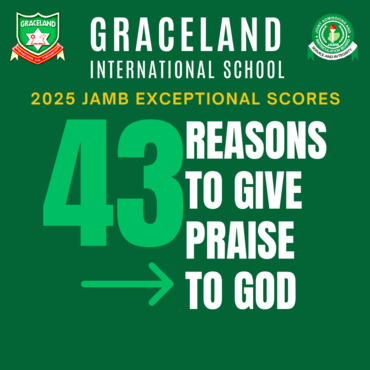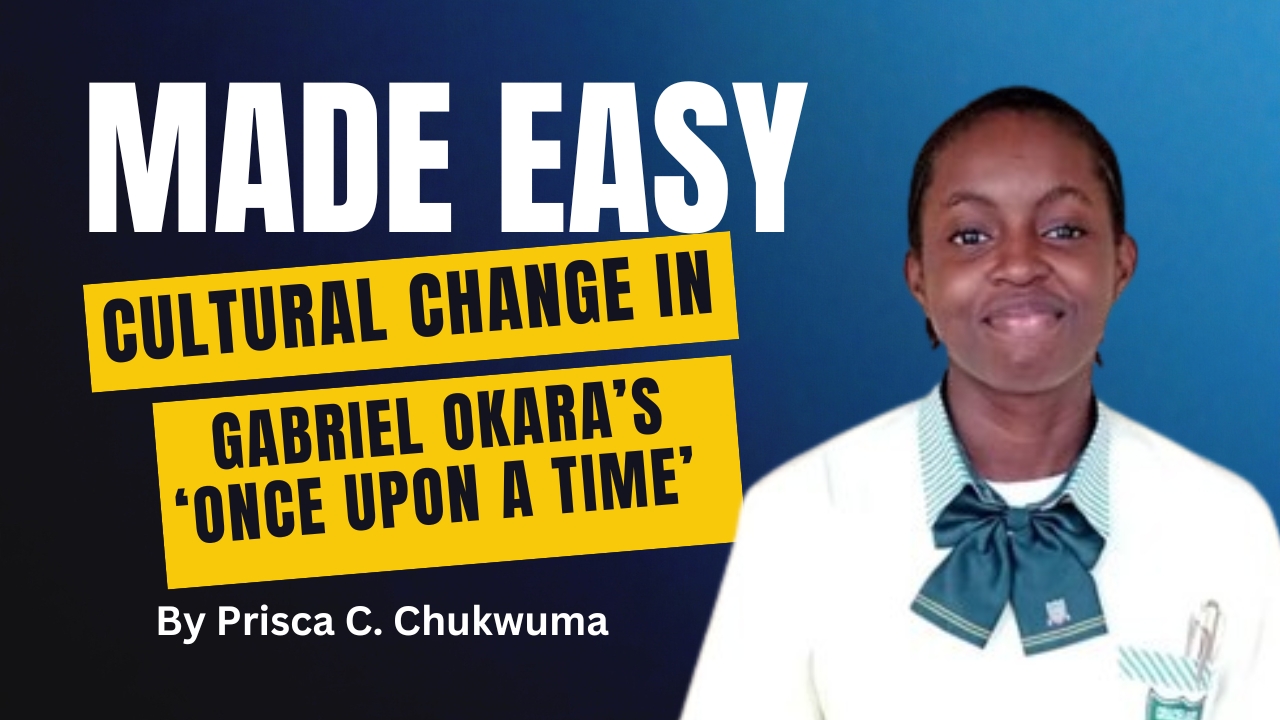
43 REASONS TO GIVE GOD PRAISE
June 3, 2025
66 Ken Saro-Wiwa Road, Port Harcourt, Rivers State, Nigeria. | Interlocking Road, Iriebe, Obio-Akpor, Rivers State, Nigeria

|
G |
abriel Okara’s
‘Once Upon a Time’ is a poem that deals with insincerity in the interactions
among Africans. It consists of seven stanzas with the number of lines
differing. The poem appears to be a conversation between a father who
represents the old African tradition and a son who represents the new Africa.
Using the device, dramatic monologue, the poet persona exposes the deceptive
and insincere attitudes of Africans after being colonized by the western
culture. The poem therefore explains the themes of cultural clash, cultural
change, sincerity versus insincerity, etc.
Cultural change
has proven to be one of the major themes in the poem. This is because the poem
passes a central idea of horrible changes that occurred in the lives of
Africans after the influence of the western culture. The poet persona says, ‘We
used to laugh with our hearts.’ This reveals that Africans were once sincere
and full of love. Laughing ‘with their hearts’ shows happiness and true love in
our interactions. We used to ‘laugh with our eyes’ meaning that we possessed
love and care within us as we interacted with one another. But now, we only
‘laugh with our teeth,’ revealing that our culture has changed as we now laugh
without true love and happiness. Our culture has changed thanks to the western
culture, forcing us to change our normal way of life and instilling in us
insincerity and deception. This insincerity and deception is seen in the line
‘while their ice-block-cold eyes, search behind my shadow,’ as it exposes the
fact that Africans look for the faults and mistakes of fellow Africans or for their
uniqueness or success to destroy.
Furthermore,
cultural change is seen in the second stanza where the poet persona says, “We
used to shake hands with our hearts.” This line expresses true love and
all-round happiness that once existed. But that’s ‘gone’ which implies that the
time we shook hands with love are no more and we only shake hands now as a mere
formality. The second stanza further emphasizes the lack of love and
authenticity in our interactions, with the line “they shake hands without their
hearts,” showing deception and lack of happiness. The line, ‘while their left
hands search my empty pockets,’ draws attention to how Africans give out their
hands as gesture only when they want something in return.
Next, cultural change is demonstrated in the
line, ‘for then I find doors shut on me.’ This uncovers the rejection given to
the poet persona despite the pleasantries offered: ‘Feel at home!’ ‘Come again.’
The poet persona finds ‘doors shut on him’. He is rejected by his own people.
The poet persona uses this to explain the drastic change in our culture, the
influence of western and the negative attitudes that came with modernity in
Africa. He has no one to rely on or call a friend, for even after their
pleasantries – ‘Come again,’ he comes ‘once’, ‘twice’ – the pleasantries end
there; ‘there will be no thrice.’ Thus, friends turn their backs at him.
However, in the
fourth stanza, the poet persona confesses that he too has been influenced by
this new African culture. He says, ‘I too have learned to wear many faces’
which symbolizes various attitudes or behaviours to match the occasion. These
faces include ‘homeface’, ‘officeface’, ‘streetface,’ ‘hostface,’
‘cocktailface.’ These faces all represent the characters he exhibits ‘like
dresses’ for each occasion. The poet persona’s behaviour changes at home, in
his office, in the street and even during parties similar to the way we change
clothes.
The poet persona
admits that he has learned to ‘laugh without hearts,’ and ‘laugh without eyes,’
which means that he has been influenced by this new culture and he now laughs
without true love and happiness. He asks his ‘son’ who symbolizes innocence and
purity to teach him how to laugh the way he used to for his ‘laugh in the
mirror only shows his teeth, like a snake’s bare fangs!’ which symbolizes
deception and cunningness.
In conclusion,
the poem centres mainly on the change that occurred among Africans after the
colonization of the western culture. Gabriel Okara constructed this
thought-provoking poem to draw attention to how Africans used to interact with
one another, with true love but all that has been changed.
My appreciation specially goes to The
Graceland International School, Port Harcourt for grooming me intensely in
literary knowledge and analysis. Through the teaching and coaching hands of my
literature teacher, Mr Prince Wekpa, whom my thanks also
expressly go to, I can now stand on high pedestal to demystify literary texts
and give them the right taste of interpretation they deserve.
Copyright © 2026 Graceland International School